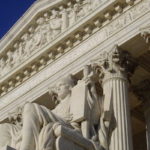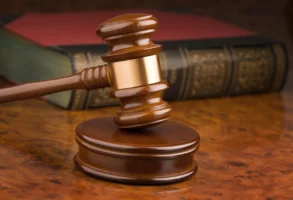Published February 10, 2022
In this exclusive Q&A, Ed Whelan, who directs EPPC’s program on the Constitution, the Courts, and the Culture, discusses the effort to replace retiring Justice Stephen Breyer.
At this point, who do you see as the leading contenders to replace Justice Breyer, and what chance does each have of being the nominee?
Ed Whelan: I accept the conventional wisdom. The three leading contenders—and probably the only candidates who are really getting a serious look—are D.C. Circuit judge Ketanji Brown Jackson, California supreme court justice Leondra Kruger, and Michelle Childs, a federal district judge in South Carolina whom President Biden has recently nominated to a D.C. Circuit seat.
Like many lawyers on the Left, I view Kruger as especially talented and as the candidate who would be most likely to have long-term liberal influence on the Supreme Court. Kruger worked for Elena Kagan in the Office of the Solicitor General, and I’d bet that Kagan is enthusiastic about her. But I doubt very much that Kruger will be the nominee. One reason is that her position in the ideological center of a very liberal California supreme court has led to her being mischaracterized as a “moderate”—not a label that activist groups on the Left find appealing.
Childs is a protegée of Congressman James Clyburn, to whom Biden arguably owes his winning the Democratic nomination for president. But Clyburn has already spent a lot of ammunition getting Childs the D.C. Circuit nomination, and I doubt that he has much left. Plus, the Left has gone after Childs as supposedly hostile to labor interests. Senator Lindsey Graham is a big backer of Childs, and she offers the best promise of a large margin in the confirmation vote, but I’d bet that the White House is more interested in satisfying the Left.
At this point, I’d be very surprised if Jackson isn’t the nominee. She was one of Biden’s first appellate picks, and she’s very connected in D.C. From what I can tell, she has a lot of admirable qualities. While I don’t think that she’s close to Kruger in legal acumen, the White House is likely to view her as plenty good enough.
When do you expect the nominee to be announced, and when do you expect confirmation hearings and a vote to occur?
President Biden has said that he intends to announce his nominee by the end of February. I think that the announcement might come much sooner, perhaps by the middle of this month. Look for the Senate Judiciary Committee hearing to occur about a month later, with the full Senate vote occurring either just before or just after the Senate’s two-week recess in April.
What do you expect to be the decisive factor for President Biden in making his selection—judicial philosophy/record, temperament, or something else?
President Biden needs a political victory. Ideally, he would like a nominee who excites the Left and wins significant support from Senate Republicans. But he will probably conclude that none of the contenders can achieve both goals. So I think that he will pick the candidate the Left is most supportive of—and that appears to be Ketanji Brown Jackson.
Do you think the president regrets his campaign pledge to select a black female nominee? Has that made the politics of the selection more straightforward or more complicated?
I think that President Biden is happy with his campaign pledge, not least because he thinks that it helped him win the Democratic nomination. The pledge appears not to be popular with the public, and the unfortunate but foreseeable effect of Biden’s explicit exclusion of other candidates is to cast a cloud of suspicion over all of the contenders. The Left has attempted to squelch debate by proclaiming all the contenders to be beyond amazing and by screeching racist in response to any scrutiny of a candidate’s record. But that’s consistent with Biden’s own approach.
Ed Whelan is a Distinguished Senior Fellow of the Ethics and Public Policy Center and holds EPPC’s Antonin Scalia Chair in Constitutional Studies. He is a regular contributor to NRO’s Bench Memos. He is co-editor of The Essential Scalia: On the Constitution, the Courts, and the Rule of Law.
Edward Whelan is a Distinguished Senior Fellow of the Ethics and Public Policy Center and holds EPPC’s Antonin Scalia Chair in Constitutional Studies. He is the longest-serving President in EPPC’s history, having held that position from March 2004 through January 2021.









